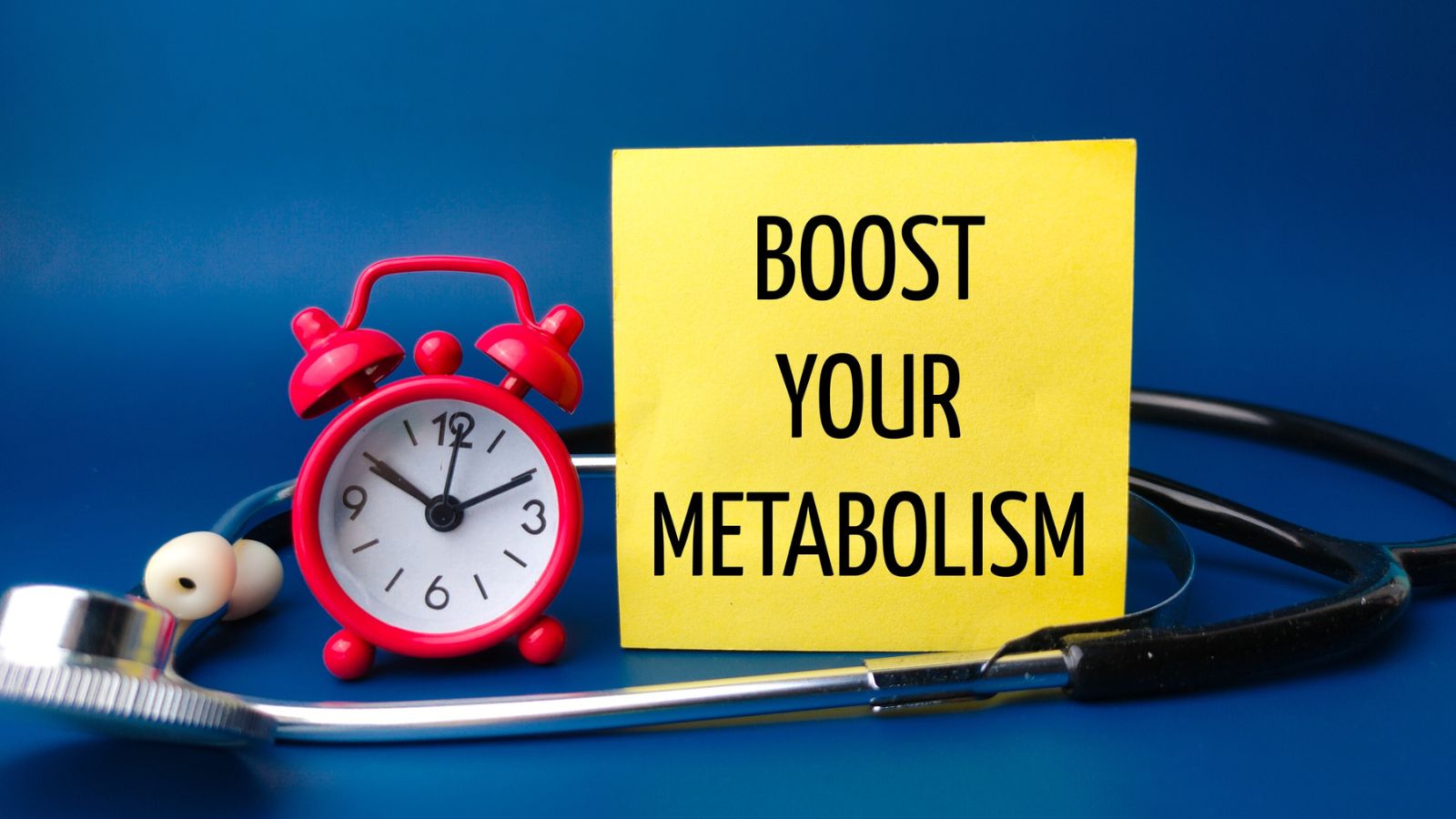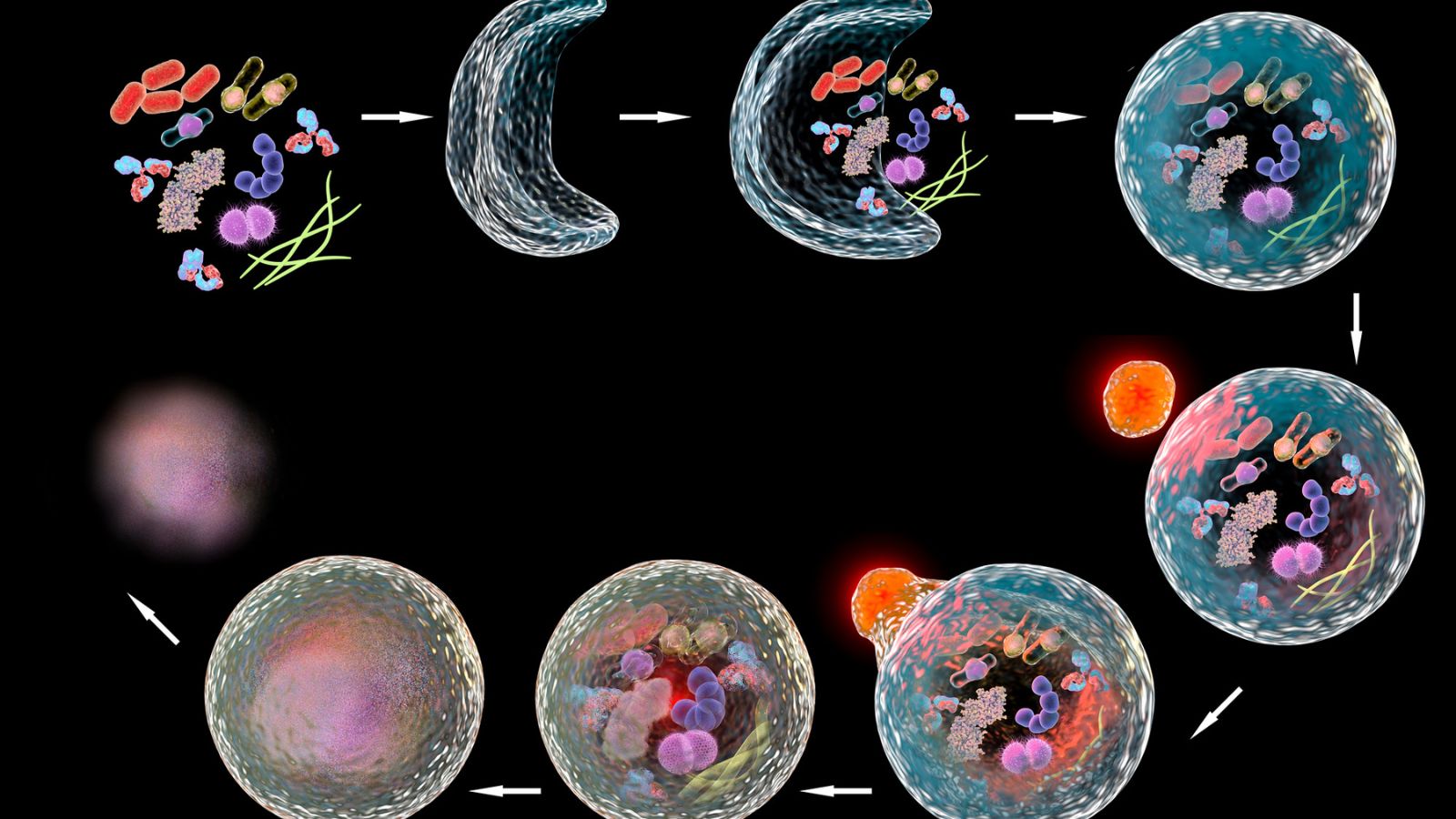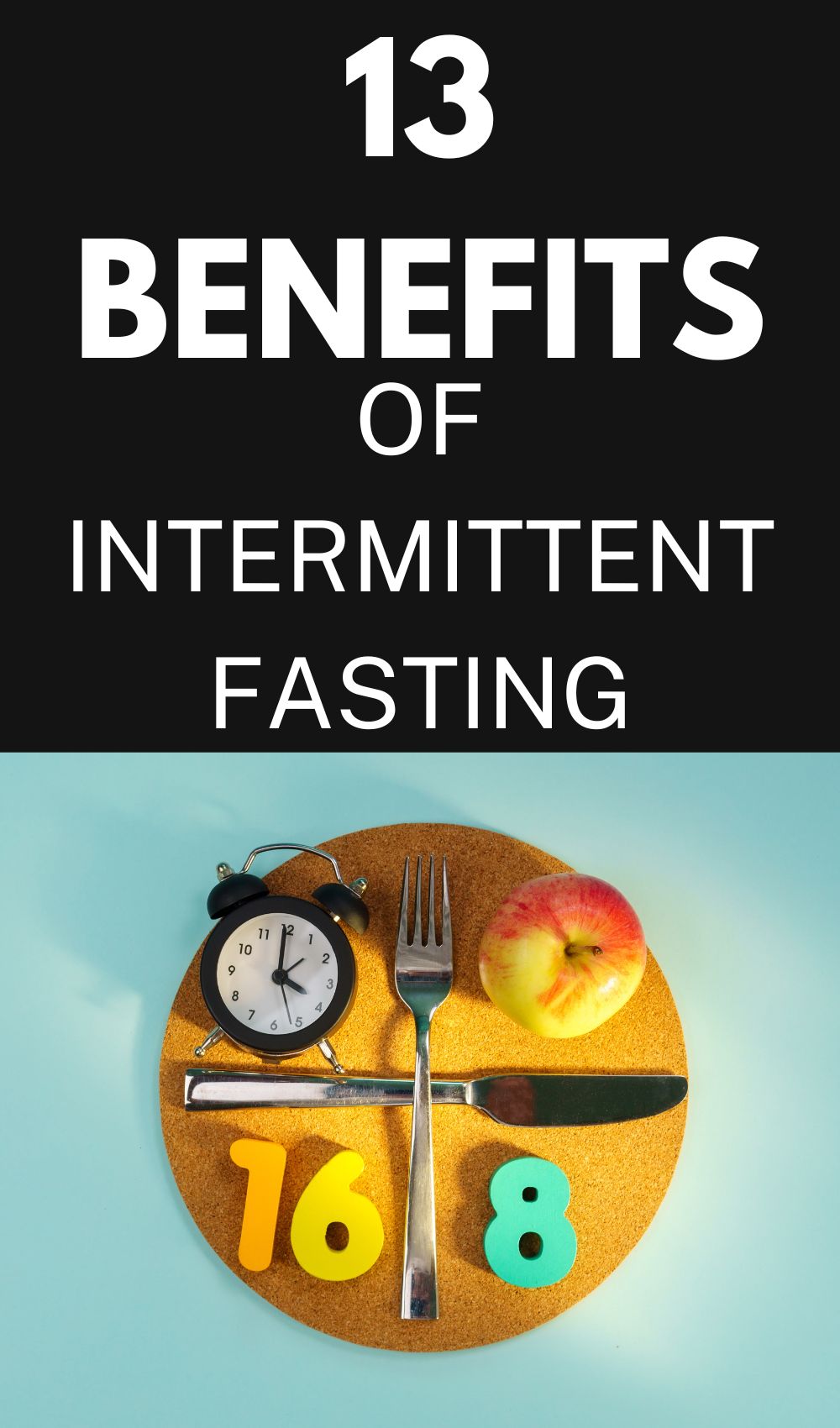Revolutionize Your Health: 13 Surprising Benefits of Intermittent Fasting
Intermittent fasting (IF) has become quite popular recently because it’s a strong way to improve your health. With this eating plan, you switch between eating and not eating, and it’s proven to have many significant effects beyond just helping with weight. In this article, we’ll look at 13 unexpected advantages of intermittent fasting that might change your thoughts about staying healthy.
Weight Loss and Fat Loss
 Pin
PinIntermittent fasting is a really effective way to lose extra weight. The trick is to limit the time when you eat. When you do this, your body has to use stored fat for energy, helping you lose weight.
This leads to shedding pounds and encourages your body to use its energy more efficiently, making you healthier and more fit. The process creates a state in your body that breaks down and uses fat, making it easier to manage your weight in the long run.
Improved Metabolic Health
 Pin
PinIntermittent fasting (IF) helps our bodies handle sugar better by improving insulin sensitivity. This lowers the risk of developing type 2 diabetes and metabolic syndrome, a bunch of health issues like high blood pressure and unusual cholesterol levels.
IF makes our bodies respond well to insulin, which is crucial for controlling blood sugar and preventing diabetes. Including intermittent fasting in a healthy routine is a smart move to avoid these health problems and boost overall well-being.
Enhanced Brain Function
 Pin
PinWhen you fast, it does something special for your brain—it triggers the production of a brain-derived neurotrophic factor (BDNF) protein. This protein is like a brain booster; it helps with things like learning and memory. But here’s the really cool part: BDNF doesn’t just stop there.
It’s like a bodyguard for your brain, potentially shielding it from diseases like Alzheimer’s. By encouraging the growth and maintenance of nerve cells, fasting might be a way to keep your brain strong and resilient, reducing the chances of memory problems as you age. So, fasting could be a smart move, not just for your body but also for keeping your mind sharp.
Increased Energy Levels
 Pin
PinEven though many people think fasting will make you tired, many people actually feel more energetic when they’re fasting. It might sound strange, but our bodies are pretty smart. Instead of making us feel tired, fasting makes our bodies use stored energy, like fat, to keep us going.
So, when we’re not eating, our bodies turn to these energy reserves, boosting alertness and energy. This shows that fasting doesn’t always mean feeling tired. In fact, it can make us feel more lively by using our stored energy in a clever way.
Heart Health
 Pin
PinIntermittent fasting seems to be good for our hearts in several ways. It can help with things like blood pressure and cholesterol levels, which are important for heart health. Studies suggest that intermittent fasting may keep blood pressure in a healthy range, lowering the risk of problems like high blood pressure.
It also seems to improve our cholesterol levels by reducing the “bad” cholesterol levels that can cause artery blockages. Moreover, intermittent fasting might help lower inflammation, which is a significant factor in heart disease. So, by giving a hand to these different aspects, intermittent fasting could be a smart move to keep our hearts healthy and reduce the chances of heart issues.
Cellular Repair and Autophagy
 Pin
PinWhen you fast, your body does something remarkable—it starts a process called autophagy. Think of autophagy as a cleaning crew for your cells. During this process, cells identify and discard the old or damaged stuff, making room for new, healthier parts.
This cell cleanup fixes things immediately and helps in the long run by supporting a longer and healthier life. So, when you fast and kickstart autophagy, it’s like giving your cells a chance to refresh and stay in good shape.
Cancer Prevention
 Pin
PinRecent studies suggest intermittent fasting might help lower the risk of certain cancers. This is because it seems to slow down the growth of cancer cells. When you do intermittent fasting, your body creates an environment that’s not so great for these abnormal cells to multiply. Plus, intermittent fasting is linked to a process called apoptosis, which is like the natural “cleanup” of cells. It helps eliminate damaged or unwanted cells, including those that could become cancerous.
Intermittent fasting looks promising for reducing the risk of some cancers by encouraging this natural cell cleanup and making it harder for cancer cells to grow. While we need more research, these findings are hopeful for using intermittent fasting as a potential strategy to prevent cancer.
Anti-Inflammatory Effects
 Pin
PinOur bodies sometimes experience ongoing inflammation, leading to different health problems. Intermittent fasting seems to be a helpful way to deal with this. When you do intermittent fasting, it has been shown to decrease markers of inflammation in the body.
This is important because lower inflammation levels could reduce the risk of developing certain inflammation-related health issues, like autoimmune disorders or heart problems. So, by practicing intermittent fasting, you might be doing something good for your overall health by keeping inflammation in check and potentially preventing certain diseases.
Improved Gut Health
 Pin
PinIntermittent fasting (IF) does something good for the tiny living organisms in our gut, called the gut microbiota. It helps create a balance of helpful bacteria, which is crucial for keeping our gut healthy. When these good bacteria are in harmony, it benefits our digestion, helps us absorb essential nutrients from food, and overall keeps our gut in good shape.
A well-balanced gut is good for digestion and positively affects our immune system, mental health, and metabolism. So, by practicing intermittent fasting, you’re not just giving your stomach a break. You also support a healthy and happy gut, impacting your overall well-being.
Hormone Regulation
 Pin
PinWhen you fast, it affects hormones like ghrelin and leptin, which control how hungry or full we feel. Ghrelin tells our brain it’s time to eat, while leptin signals when we’ve had enough. Intermittent fasting helps balance these hormones, creating a healthier connection with food.
Doing this can make us more aware of when we’re hungry and satisfied, preventing overeating and encouraging a mindful and positive approach to eating. Fasting isn’t just about when we eat. It’s also about building a better relationship with food.
Longevity and Aging
 Pin
PinResearch with animals hints that intermittent fasting could make them live longer. It seems like intermittent fasting helps cells be stronger and more resilient, protecting against diseases that come with aging.
So, intermittent fasting doesn’t just make animals healthier right away. It also seems to slow down how quickly they get old. While we still need more research on humans, these early findings suggest that intermittent fasting might benefit our health and help us live longer and healthier lives.
Enhanced Exercise Performance
 Pin
PinFasting does more than help with weight and metabolism—it can boost your endurance and performance during exercise. When you fast, your body starts using stored fat as its primary energy source. This helps manage weight and provides a steady supply of energy during physical activities.
Additionally, fasting positively affects the health of our cell’s energy powerhouses, called mitochondria. Keeping these mitochondria healthy means our body can produce energy more efficiently, making us better at enduring and performing well during exercise. So, fasting isn’t just about what you do or don’t eat. It sets the stage for improved energy use and overall fitness during workouts.
Mood Regulation
 Pin
PinIntermittent fasting doesn’t just affect your body but also positively impacts your mood and mental well-being. Some people who try intermittent fasting say they feel better emotionally, with improved mood, clearer thinking, and even a reduction in symptoms linked to conditions like depression.
While everyone’s experience is different, these reports suggest that intermittent fasting might benefit your body and contribute to feeling more positive and mentally clear for some people.
Conclusion
 Pin
PinIntermittent fasting is more than just a weight loss strategy. It’s a comprehensive approach to improving your overall health. While people may react differently to it, the evidence supporting its various benefits keeps increasing.
If you’re considering intermittent fasting, talking to a healthcare professional first is crucial, especially if you have existing health issues. When done responsibly, intermittent fasting has the potential to make a significant positive impact on your health and well-being.
When Does the Keto Flu Start
 Pin
PinThe keto flu isn’t as bad as it sounds and doesn’t last very long, either. Find out when it starts and how to get through it.
How to Get Into Ketosis in 3 Easy Steps
 Pin
PinStarting the keto diet is one thing, but getting into ketosis is a whole other level. Find out how to get into ketosis in 3 simple steps.
6 Ways Keto Can Help You Lose Weight
 Pin
PinDid you know that keto has many health benefits besides helping you lose weight? But let’s talk about the weight loss aspect of it.
How to Stick to a Clean Keto Diet
 Pin
PinSwitching to a keto diet isn’t easy and does come with some challenges: like sticking to it faithfully. Find out how to stick to a clean diet.
What is a Carnivore Diet?
 Pin
PinYou’ve probably heard about the carnivore diet but aren’t sure if it’s right for you. Find out here what it is and if it’s an ideal diet for you.







